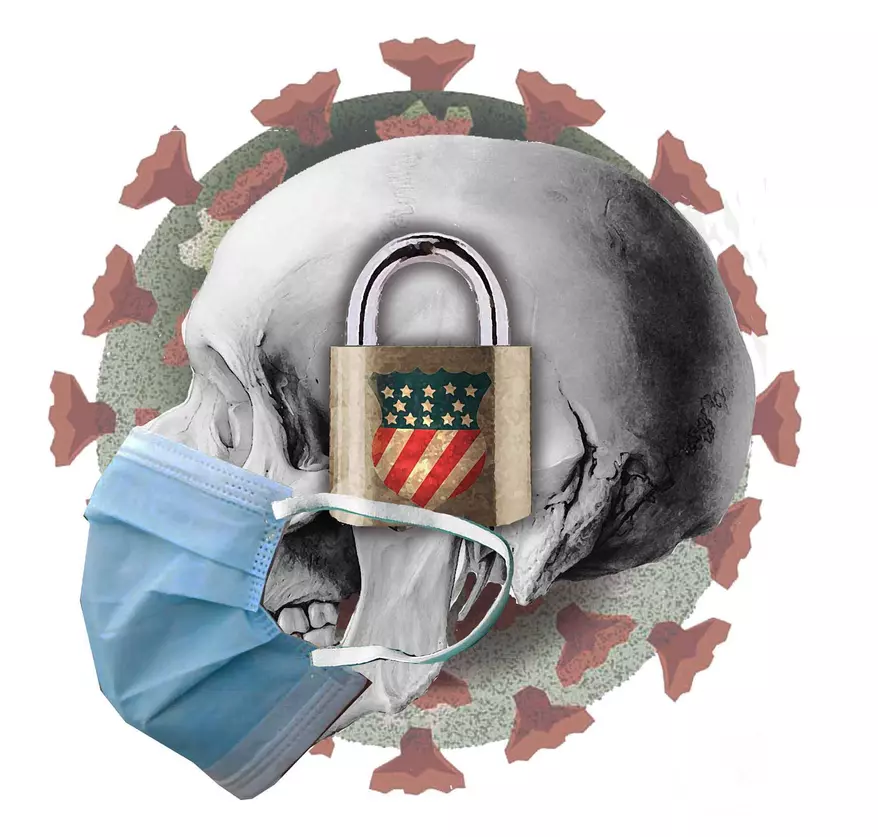“Most likely, lockdowns represent the biggest policy mistake of modern times.”
This past week, the most comprehensive study to date — a 220-page book — of the effect of lockdowns (written by Lars Jonung, professor emeritus at Sweden’s Lund University, Jonas Herby of the Center for Political Studies in Copenhagen, Denmark, and Steve H. Hanke, professor of applied economics and founder & co-director of the Institute for Applied Economics, Global Health at Johns Hopkins University) was published by the Institute of Economic Affairs in London. “It demonstrates lockdowns were a failed promise. They had negligible health effects but disastrous economic, social, and political costs to society.”
We now know that as a result of lockdowns, global economic growth was stunted, public debt in most countries grew massively, inequality rose, great damage was done to children’s education, health-related quality of life was reduced, mental health was damaged, crime increased in many places, democracy was undermined, and there was a huge loss of individual freedom. So much loss and pain for so little gain.
At first glance, lockdowns seem to make sense. If a family member or friend tells you that they think they are coming down with the flu, the proper reaction is to avoid being around that person, if possible, until they recover. An agent of the government does not have to tell us to avoid the sick person and threaten to fine us for noncompliance. Most everyone understands basic germ theory and voluntarily acts accordingly.
The researchers who authored “Did Lockdowns Work? The Verdict on Covid Restrictions” looked at 19,646 individual studies dealing with the impact of lockdowns at particular times and places and carefully analyzed the 22 studies that were the most authoritative and comparable.
As the pandemic progressed, it quickly became obvious that the people who were in the most danger were the elderly and obese, while children faced little danger. Sensible leaders like those in Sweden used a light-touch approach, leaving most schools and businesses open and relying on the good sense of the Swedish people to decide how much risk they wished to take based on their health.
The result was that mortality rates were, on average, no higher in Sweden than in most European countries, but the damage to the economy, education and individual liberties was relatively minor. In the U.S., individual states differed widely in the degree of lockdown required, with places like Florida remaining largely open and places like New York being very restrictive. The result was that age-adjusted mortality rates in Florida were actually lower than in New York, and school-aged children did not suffer the loss of learning that occurred in closed school systems like Chicago’s.
The health authorities in most countries and particularly in the U.S. lost a great deal of credibility because of what turned out to be so many erroneous statements about such things as how effective lockdowns, masks and vaccines would be. Had the people at the Centers for Disease Control and Prevention and Food and Drug Administration been more modest about what they did and did not know, everyone would have been better off.
There is a field of economics called “public choice,” most thoroughly developed by the late Nobel laureate James Buchanan and Gordon Tullock. In essence, they argued, as have many others, that elected government leaders and bureaucrats are no less self-interested than the population at large. Many of them refer to themselves as “public servants” when in fact, they are as greedy and power-seeking as any in business. The pandemic was a great excuse for many in government to accumulate more power — e.g., the ability to order certain businesses, schools, churches, etc. to shut down and for people to wear face masks was as much of a “high” for them as it is for dictators of all political stripes.
All but essential workers were ordered to stay home. Most everyone agreed that medical personnel, police, fire and other first responders were essential. But after that, who was determined to be essential often was more of a political decision than one based on some sort of objective reality. Bars could remain open, but not churches — much of the Washington political establishment tends to be a hard-drinking but not a church-attending crowd.
The hypocrisy of those in government was never-ending. The enviros hate and demonize the fossil fuel industry, but suddenly those who drill for oil, mine coal, work in refineries, or operate local gas stations were essential. The good people who operate our supermarkets were also expected to risk their lives. We learned that all of those non-military and non-first responders’ government workers are, in fact, not essential. Did anyone miss all those people who staff the various alphabet government regulatory agencies like the SEC or IRS? Many of them still have not returned to work — oh, my!
What was particularly shameful was that much of the media was in cahoots with government officials in trying to demonize any voices of dissent, no matter how credible, resulting in many unnecessary deaths, economic hardship and loss of liberty.
As mankind is hit in the future with various pandemics, plagues, etc., the lesson should be to err on the side of liberty, allowing people to make individual choices on how to protect themselves using the best information they can find — whether it comes from government or nongovernment sources.
• Richard W. Rahn is chairman of the Institute for Global Economic Growth and MCon LLC.
https://www.washingtontimes.com/news/2023/jun/12/pandemic-made-great-excuse-for-many-in-government-/
© Copyright 2023 The Washington Times, LLC.
